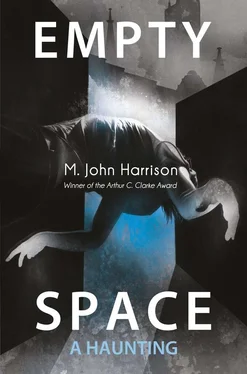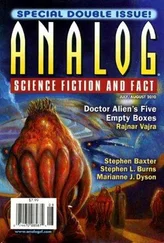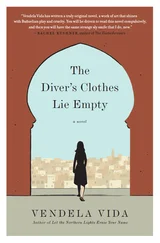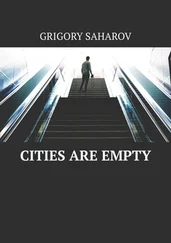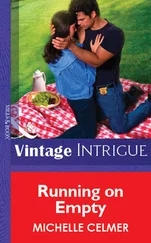M. John Harrison
EMPTY SPACE
A HAUNTING
‘No point is more central than this, that empty space is not empty. It is the seat of the most violent physics’
JOHN A. WHEELER
‘Our instruments have limits. Since knowledge of physical reality depends on what we can measure, we will never know all there is to know . . . Much better to accept that our knowledge of physical reality is necessarily incomplete . . .’
MARCELO GLEISER
‘In a certain sense, everything is everywhere at all times’
A.E. VAN VOGT
Anna Waterman heard two cats fighting all evening. At ten o’clock she went out into the garden and called in the family tom. A decade or so ago, her daughter Marnie, age thirteen and already unfathomable, had named this animal ‘James’. Late summer displayed a greenish afterglow at the bottom of a sky full of stars. Anna’s was a long garden, perhaps fifty yards by twenty, with lichenous apple trees in unmown grass and a leaning summerhouse which looked like something from a 1970s Russian film — falling apart, surrounded by overgrown flowerbeds, filled with those things you discard but don’t throw away. The flowerbeds had an unhealthy vitality. Every year, tended or not, they produced dense mixtures of indigenous weeds, wild flowers and — since the warming of the mid-2000s — exotics with large petals and fleshy leaves, blown in as seeds from who knew where.
‘James!’ Anna called.
James didn’t respond, but neither were there sounds of him killing or being killed. Anna was encouraged.
She found him in the base of the hedge at the end of the garden, where he had something cornered among the roots and dry earth. He was nosing it about, tapping at it with a front paw, purring to himself. She stroked him and he ignored her.
‘You old fool,’ she said. ‘What have you found now?’
Some gelid bits and pieces loosely scattered with soil. Except for the size and colour, they looked like internal organs. They had the swelling curve of pig’s kidney. There was a faint glow to them. Anna picked one up and dropped it immediately — it was warm to the touch. The cat, delighted, sprang upon it and knocked it about.
‘How disgusting you are, James,’ Anna told him.
Later she put on Marigold gloves, slid two or three of the objects into a plastic bag and carried them back to the house. There, she emptied them into a glass dish. Slumped on the worktop they looked like any offal, unused to supporting themselves in the world. Their colours resembled the flasks of liquid you could still see in the windows of pharmacies when Anna was young — blues, greens and a rich permanganate — now faded and a touch acidic under the halogen lights. Anna removed her best Wusthof knife from the block and then, nerve failing her, put it back again. She stared at the contents of the dish from different angles, then went to telephone Marnie.
‘Why are you calling?’ Marnie said, after five minutes.
‘I suppose I just wanted to tell you how lucky I’d been. In all sorts of things.’
At a glance, Anna knew, this seemed absurd. She had been anorexic throughout her twenties; twice a failed suicide. Her first husband, Michael, who wasn’t much better, had walked into the sea one night off Mann Hill Beach south of Boston. They never found his body. He had been a brilliant man but unbalanced. ‘He was a brilliant man,’ she would tell people, ‘who took things too much to heart.’ But since then she had remarried, borne Marnie, lived a life. She had made quite a nice life with Marnie’s father, first in London and then in this quiet, expensive house near the river. It wouldn’t have suited Michael. Living had to be an effort for him; a kind of punishment.
‘Neither of us knew how to live,’ she said now.
‘Anna —’
‘He had some difficulties.’
Marnie received this in silence.
‘You know,’ Anna said. ‘Sex difficulties. Your father was much better at that side of things.’
‘Anna, that’s more information than I need.’
Marnie had been conceived out of both guilt and relief at losing Michael — literally, misplacing him — that night on Mann Hill Beach. Confused, Anna had flown home to London and fucked the first kind person she found. That was the only way to put it, especially from this distance. She had no regrets, although at times the memory made her feel she ought to be especially nice to Marnie. Now she had a sudden surprised recollection of Michael leaning over her in the dark, and one of them saying something like, ‘Sparks! Sparks in everything!’
‘Anna? Anna, I have to go now. It’s late. It’s midnight.’
‘Is it, dear?’
‘You’ve got Dr Alpert tomorrow,’ Marnie reminded her.
‘I’m afraid I’ve lost the details of that appointment,’ said Anna in a vague but mutinous way.
‘Good job I kept a note of them, then.’
Anna, suddenly overwhelmed with anxiety and love, said, ‘Oh, Marnie, I do hope you enjoy sex. I’d hate to think of you missing out on something so lovely.’
‘I’ll drive you to the station in the morning. Goodnight, Anna.’
Why was I phoning? Anna asked herself. When no answer came, she went to the kitchen door and looked out. Mist had pooled two or three feet deep in the rough pasture between the garden and the river. Above it, she could just make out a line of willows. She called the cat; offered him rabbit-flavoured food; took herself to bed, where her dream woke her as usual at ten past four in the morning, soaked to the skin and with a kind of leaden buzzing in her ears. It was less a sound, as she often tried to explain to Dr Alpert, than a feeling. ‘It’s a feeling from the dream,’ she would say. It was a physical sensation. ‘I’m not even sure it’s me who’s feeling it.’ She struggled out of bed, weary and ill, and went downstairs to get water. Grey light was creeping in round the edges of the kitchen blinds. She thought she might have another look at the organs — or whatever they were — in the dish, but they’d gone. James could easily have jumped up on the counter and eaten them, but Anna felt they’d simply melted away. There was a drop of liquid left. It looked enough like ordinary water to be tipped down the sink. She decided not to use the dish for food again.
Every night since Michael walked into the sea, Anna had gone out to call in a cat, fetch a chair from the lawn to save it from the damp, look up at the stars. Wherever she lived it was the same. Each night it had been the same dream.
She thought: I was phoning for someone to talk to.
Next morning she truanted on Dr Alpert, changed trains at London Victoria and made her way down through the postal codes until, the other side of Balham, she thought she recognised the way the streets curled and dovetailed across the swell of a hill. ‘Orchid Nails’, read the signs outside the station: ‘Minty Pearls Dental Clinic’. Anna descended from the train and wandered thoughtfully along staring into the windows of empty houses. She had no plan. She favoured quiet residential avenues and a particular kind of four-bedroom mock-Tudor, with laurels and a slip of driveway to one side of its front garden. The shabbier a place looked, the more likely it was to hold her attention. By mid afternoon she thought she might be in Sydenham Hill. She had covered miles under the enamel light, trespassed on the hard standings of a dozen middle class homes. She was exhausted. Her ankles hurt. She was lost. It wasn’t the first time she had done this.
Sydenham Hill turned out, in point of fact, to be Norbiton, a place named after an imaginary suburb in an Edwardian novel. Anna sat down with a cup of tea in the station café and emptied her bag on to the table. It was full of the usual silt — ends of make-up, a single glove, an address book bloated with the names of people she never saw anymore, her phone with its flat battery. There were receipts folded into very small squares, foreign coins and coins no longer in circulation. There was an old outboard computer drive: this, she took up.
Читать дальше
